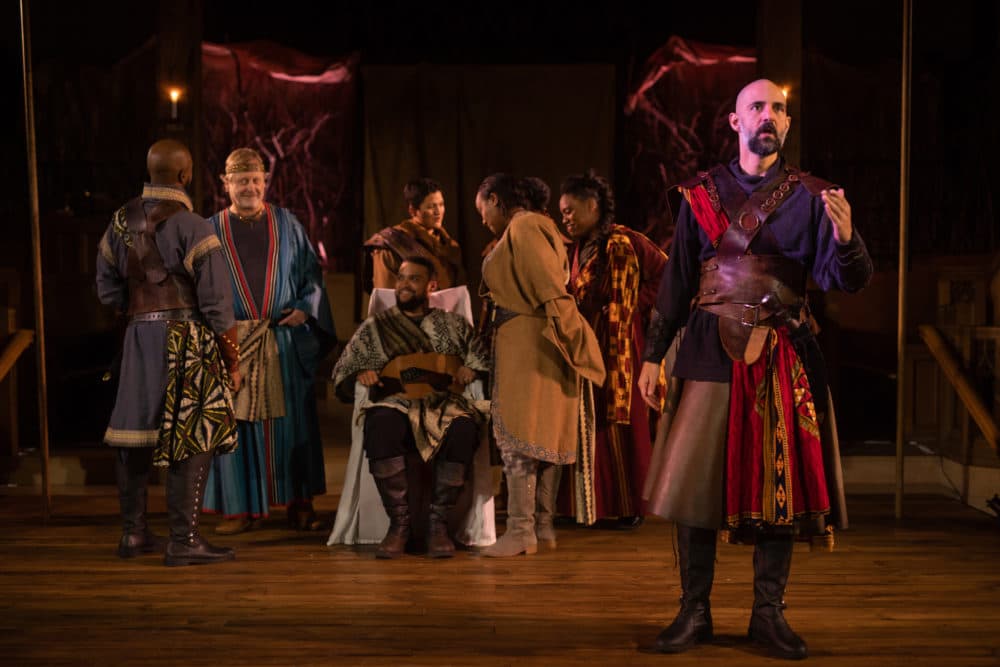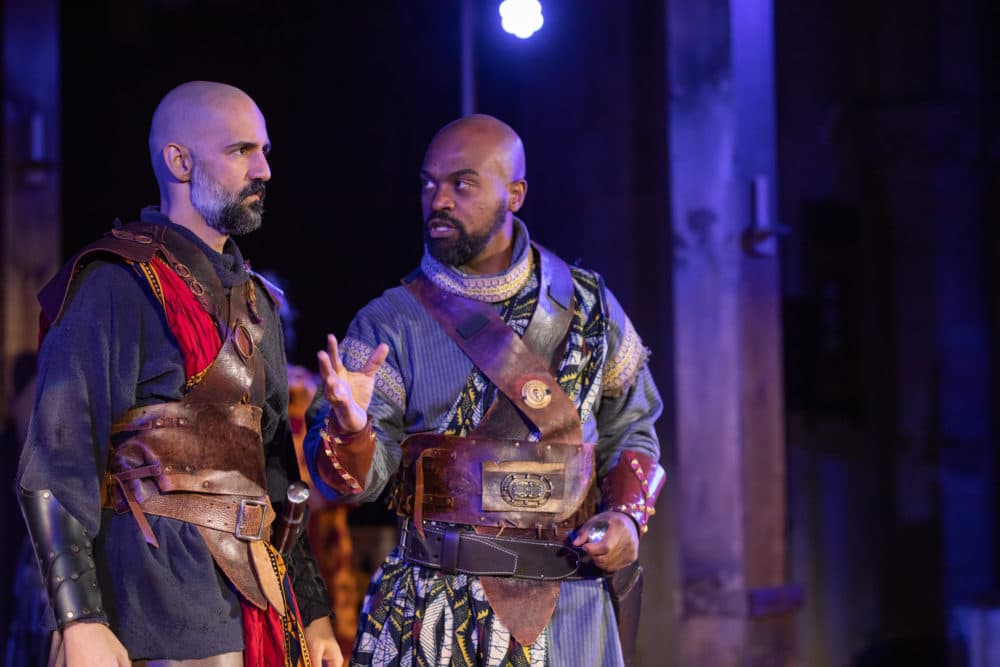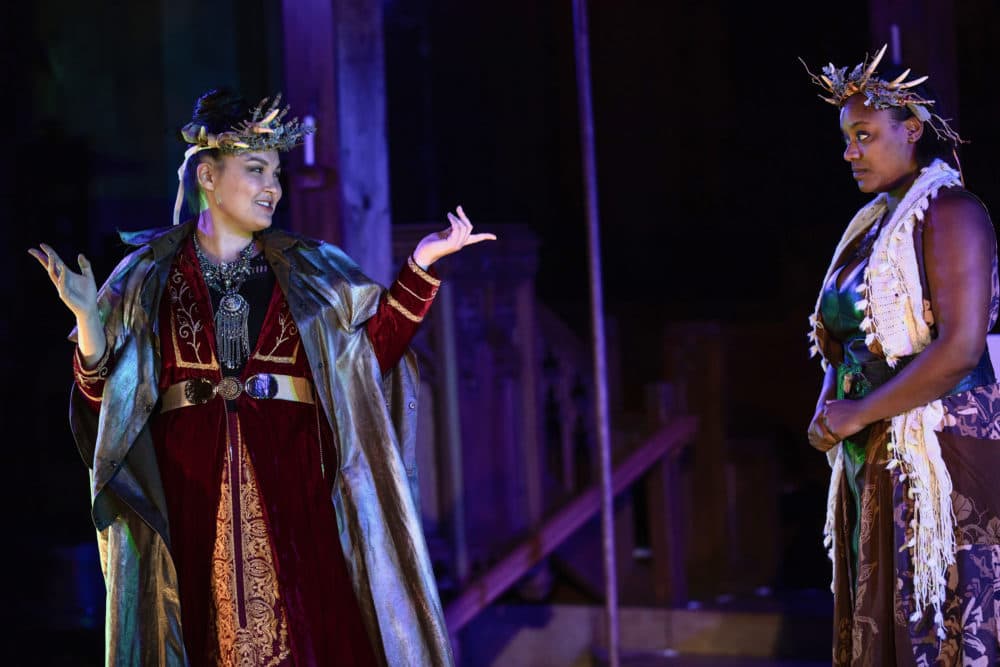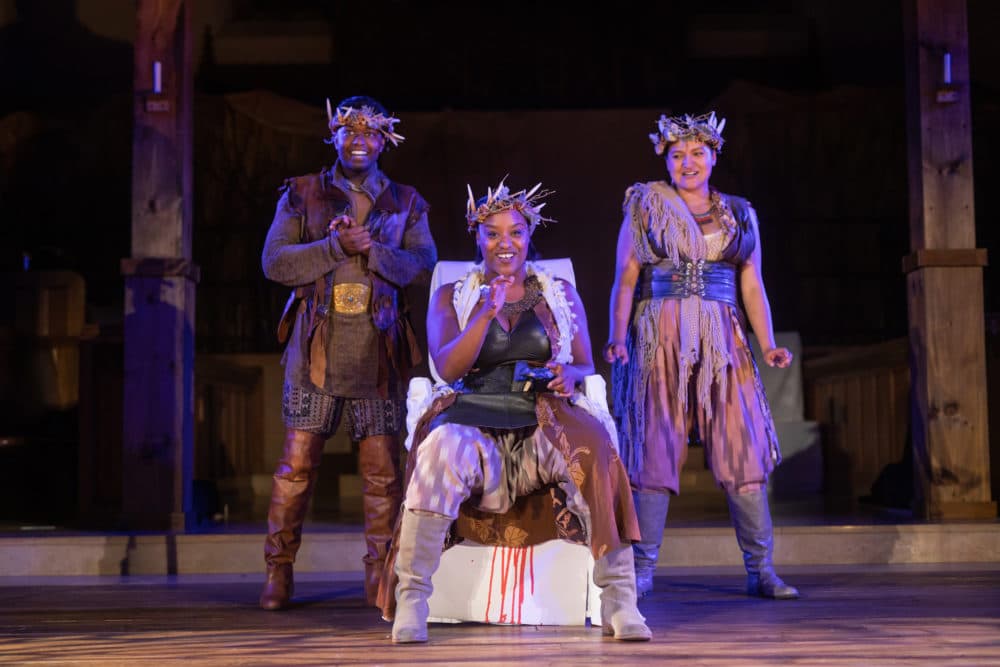Advertisement
Nuyorican Playwright's Translated Shakespeare Play Premieres In Boston Area To Some Criticism From Traditionalists

A few years ago, Nuyorican playwright Migdalia Cruz was chosen for a commission that initially excited her but also frightened her. The Oregon Shakespeare Festival asked her to translate a Shakespeare play for contemporary audiences.
She was commissioned as a part of the vision of Silicon Valley entrepreneur Dave Hitz, aimed at translating Shakespeare for modern audiences to understand without the gap of 400 years of linguistic evolution.
Cruz has known she wanted to be a playwright since she was 6 years old and wrote her first play.
"It was a puppet show about civil rights. My father made puppets out of Spalding balls and Kleenex tissues, and it was about the Ku Klux Klan trying to lynch a black man. He asked for a cigarette and when they gave him a match [for the] cigarette, he lit them on fire," Cruz said in a recent interview.
When the festival tapped her for the translation, she knew "Macbeth" called her, but there was something daunting about touching the text.
"That's my play. It's about mourning, it's about blood, it's about ambition. It's about people who have been treated as less than, wanting to be more than. It's about people trying to create their own country and feel a sense of entitlement," she said.
Why would anyone change the words, she thought? How could she translate the text without ruining the play? "It's a crazy f------ idea," she thought to herself.
But Cruz has never shied away from crazy ideas.
She set out — painstakingly dissecting the play verse-by-verse, word-by-word, making "Macbeth" immediately understandable to contemporary ears while preserving its rhetorical rigor.

She also set out to understand Shakespeare's thoughts and characters more deeply. She even traveled to Macbeth's grave in Iona. "I went to where he laid on the ground and then I thought, 'How do I touch the words and not damage them?' "
Actors' Shakespeare Project is producing the world premiere of Cruz's translated "Macbeth" at The United Parish in Brookline.
To notice the difference in the translation, one must first listen to the original. Take Scene 7 of the play's first act, where Lady Macbeth speaks to Macbeth about his cowardice:
Was the hope drunk
Wherein you dressed yourself? Hath it slept since?
And wakes it now, to look so green and pale
At what it did so freely? From this time
Such I account thy love. Art thou afeard
To be the same in thine own act and valor
As thou art in desire? Wouldst thou have that
Which thou esteem’st the ornament of life,
And live a coward in thine own esteem,
Letting “I dare not” wait upon “I would, ”
Like the poor cat i' th' adage?
And now, Cruz's translation:
Are your hopes drunk
with which you dressed yourself? Have they slept since?
And wake right now looking so green and pale
made sick by what they once longed for freely. From now on
I will question your love.
Can you be the same in action and valor as you are in desire?
Would you have what you esteemed as the crowning glory of life or live a coward in your own esteem?
Letting "I dare not" come before "I will"
like a fish-loving cat who dare not wet his feet.

Cruz's translation is still solid, leaving one with the same stern tone conveyed by Shakespeare, but also much more modern and accessible. For Paige Clark, who plays Lady Macbeth in Actor's Shakespeare Project's production, she said her favorite translation is the last line of that Lady Macbeth piece that references a poor cat in an adage.
"An adage is a saying," she said. "Well, we don't know what that adage or saying is anymore. We don't. Shakespearean audiences did."
Cruz had to research the adage used hundreds of years ago in Europe. "The idiom is the cat wants the fish but doesn't want to wet his paws. So a cat's like, sitting by a lake or a river and really wants a fish to eat. But he's too lazy to or too afraid to get his paws wet," explained Clark.
Despite the care with which Cruz approached the translation, Actor's Shakespeare Company has said it has received a surprising number of negative comments from people who have yet to see the production but think Shakespeare's texts should never be touched.
Advertisement
Artistic Director Christopher Edwards says it's not lost on him that these criticisms often come from a predominately white audience and are aimed at the cast, which is mostly made up of people of color.

"We've had some some push-back that I would say actually borders on racism around people of color doing something that was initially created for white Anglo males," Edwards said. "If you are an actor of Asian descent and maybe still have a sound that's culturally specific to you [and people say that's not] Shakespearean in nature — that's not well pronounced language or standard American stage speech ... I think that that borders on racism."
Clark, who is Asian-American, said playing Lady Macbeth in a production directed by a woman of color (Dawn Simmons) and translated by another has been really freeing.
"The opportunity to play this role in a production that is embracing of a woman of color as Lady Macbeth — not kind of in spite of, or as an exotic tokenism or something — is really thrilling," she said, "and I'm really privileged to be a part of it."
For Cruz, the criticisms about translated Shakespeare texts come from an "unenlightened space." Translating Shakespeare allowed her to settle into her power as a playwright — to take ownership of her talent, she said.
"It made me feel really free. After years of being treated as less than — you know, a woman, a Puerto Rican from the Bronx, poor, all the things. Whatever it is they wanted to say to me — I can say I actually think I really am entitled to my job."
Actors' Shakespeare Project's production of Migdalia Cruz's translated "Macbeth" runs at The United Parish in Brookline until Nov. 11.
This segment aired on October 16, 2018.
